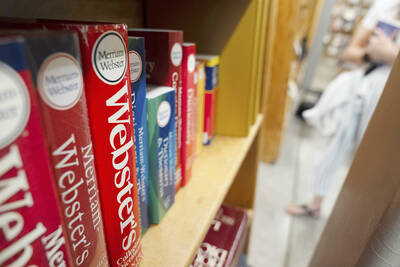On March 4, a massive piece of space junk reportedly crashed into *the far side of the Moon. Due to its location facing away from the Earth, it may take months to identify the impact site of the object. However, scientists predict the crash will have little effect on the Moon besides forming a new crater.
The junk was initially thought to belong to an old SpaceX rocket after astronomers first noticed the object heading towards the Moon. However, it was later found that the debris was most likely a Chinese-owned rocket. Chinese officials have denied this, saying the rocket in question had burned up when re-entering the Earth’s atmosphere.
While the rocket’s original owner and its impact on the Moon are not significant, the issue does raise an important question about space junk. It’s estimated that there are currently more than 30,000 pieces of space junk larger than 10 centimeters in orbit around the Earth. These objects pose very little threat to us because they burn up in the atmosphere if they start to fall back to the planet.

Photo courtesy of Shutterstock 照片:Shutterstock提供
However, these objects can be a significant threat to satellites and other devices. These scrap pieces move at speeds of up to eight kilometers per second and cause severe damage if they collide with essential devices in space. As a result, a growing group of scientists are calling for action to resolve this issue before it affects our ability to travel into space.
據報導,有一塊巨大的太空垃圾在三月四日撞擊月球背面。由於事發位置背對地球,因此可能需要花費數月才能確定太空垃圾的撞擊地點。然而,科學家預測,除了形成一個新的隕石坑外,這次撞擊對月球沒什麼影響。
在天文學家最初注意到太空垃圾朝月球的方向前進後,原先認為其為屬於SpaceX之前的一枚火箭。不過,後來發現太空垃圾最有可能是一枚中國擁有的火箭。中國官員否認了這一點,宣稱提及的那枚火箭在重新進入地球大氣層時就已燃燒殆盡。
雖然火箭原主不重要,且其對月球的影響並不大,但這個議題確實引發了一個關於太空垃圾的重要問題。據估計,目前有超過三萬片大於十公分的太空垃圾在環繞地球的軌道上運行。這些物體對我們構成的威脅不大,因為如果它們開始掉落回到地球,其會在大氣層中燃燒殆盡。
然而,這些物體可能會對衛星和其他設備構成一大威脅。這些廢棄的碎片移動速度最高可達每秒八公里,而且如果它們撞上太空中重要的設備,就會造成嚴重的損壞。因此,越來越多科學家呼籲,在這個議題影響到人類進行太空旅行的能力之前,要採取行動解決它。
*the far side of the Moon 指的即是「月球永遠背對地球的那一面」,即「月球背面」。
What Did You Learn?
1. Which of the following is true about the space junk that hit the Moon?
(A) It was visible from the Earth when it struck the Moon.
(B) Astronomers did not notice it until it crashed into the Moon.
(C) A crater might be formed because of the impact of the junk.
(D) It was supposed to burn up in the atmosphere before it reached the Moon.
2. According to the passage, why is space junk a serious concern?
(A) It can threaten important satellites.
(B) It can cost a lot of money to clean it up.
(C) It can cause serious damage to the Moon.
(D) It can fall back down to Earth and harm people.
3. What are an increasing number of scientists asking for?
(A) Construction of more rockets to travel to space.
(B) Further research into the far side of the Moon.
(C) The problem of space trash to be addressed.
(D) Protection of scientific satellites in space.
答案: 1. (C) 2. (A) 3. (C)
Word in Use
1. identify vt. 確定,發現
The engineer still can’t identify the problem that caused the equipment to break down.
那名工程師仍無法確定是什麼問題造成設備當機。
2. predict vt. 預測
The typhoon is predicted to make landfall tomorrow morning.
該颱風被預測明早會登陸。
3. initially adv. 最初,起先
The building initially served as a palace, but it has been turned into a museum.
那棟建築最初是皇宮,但現已變成為博物館。
4. issue n. 議題
The novel discussed several issues, including air pollution.
那本小說探討了好幾個議題,包含空汙問題。
5. estimate vt. 估計,估算
It was difficult to estimate how many people received injuries in the accident.
那次意外很難估算有多少人受傷。
Practical Phrases
1. face away from 背對;把臉轉離開
Allison faced away from the blood when the doctor was cleaning her wounds.
醫生在清洗艾莉森的傷口時,她把臉轉開不看血。
2. belong to... 屬於…
The note posted on the fridge door reads, “Do not take food that doesn’t belong to you.”
貼在冰箱門的紙條寫著:「別把不屬於你的食物拿走。」
3. sb / sth in question 正被談論的某人/物
While we were talking about the newcomer, the colleague in question showed up.
我們正在討論新人時,被談論的那位同事就出現了。
4. burn up 燒盡,燒毀
Acres of the forest have burned up because of the wildfires.
好幾畝的林地因野火而燒毀。
5. pose little / no threat to... 對…的威脅不大/沒有威脅
The factory owner claimed that the waste posed no threat to human health, but the residents didn’t believe him.
那位工廠老闆宣稱該廢料對人體的健康沒有危害,但居民不相信他。
聽文章朗讀及講解: https://ivy.pse.is/455bfu
本文出自常春藤解析英語雜誌: www.ivy.com.tw

In English, “name idioms” are part of what makes English fascinating. Let’s put a few examples under the microscope. Doubting Thomas This expression stems from the Bible. Thomas, one of Jesus’s disciples, refused to believe Jesus had been resurrected from the dead. He declared he wouldn’t accept it until he could see the nail marks in Jesus’s hands and touch his wounds himself. Today, this idiom refers to someone who won’t believe something without concrete evidence. For instance, if your friend’s expertise is reliable, but you’re still suspicious, you might be a “doubting Thomas.” Smart Aleck The origin of this phrase likely comes from

A: Hey, the world’s major dictionaries just unveiled their words of the year for 2025. B: Yup, the Cambridge Dictionary chose the word “parasocial,” which refers to a connection that someone feels between themselves and a famous person they don’t really know. A: One-sided parasocial relationships with celebrities, influencers and even AI chatbots have clearly become more common. B: The Oxford Dictionary picked “rage bait” — online content designed to elicit anger by being frustrating, provocative or offensive in order to increase traffic to Web sites or social media accounts. A: The Collins Dictionary picked “vibe coding.” Let’s

A: Apart from the world’s major dictionaries, the online Dictionary.com actually picked “67” as its word of the year. B: What does “67” even mean? A: Even the dictionary wasn’t exactly sure about its meaning. The slang term’s origin might be traced to US rapper Skrilla’s song Doot Doot (67). Aren’t Taiwanese media outlets choosing the Mandarin word for 2025? B: Yeah and after hearing the song Good-for-Nothing, adapted from some catchphrases of Legislator Wang Shih-chien, I’m going to vote for the character “tsung” (hasty) from the lyrics. A: Hopefully, in the new year, we’ll be calm as the

Sea star wasting disease (SSWD) is a strange and serious illness affecting sea stars, or starfish. This disease causes sea stars to develop painful lesions, lose their arms, and eventually turn into a gooey, melted mess. Since it was first observed in 2013, millions of sea stars along the Pacific coast of North America have died from this __1__. Although viruses were once considered a possible cause, researchers now believe that environmental stressors and microorganisms are primarily __2__ for sea star wasting disease. One of the main environmental triggers appears to be warmer ocean water. When the water heats